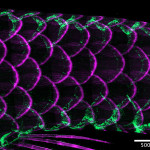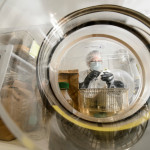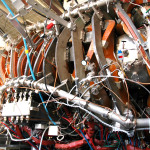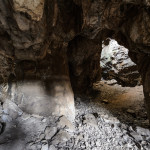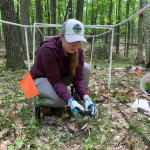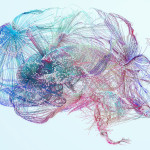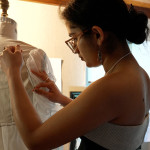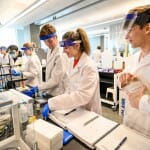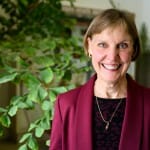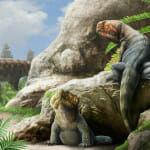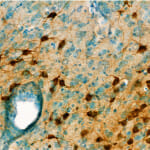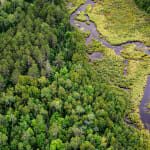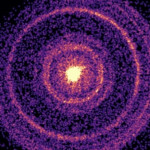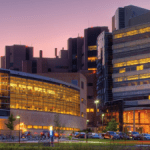Category Science & Technology
Federal grants to 2 Wisconsin startups highlight UW’s leading role in fusion energy
The two companies' Wisconsin roots and national recognition are the result of decades of fusion investment and innovation at UW–Madison.
Archaeologists uncover evidence of intentional burial, cave engravings by early human ancestor
Until now, scholars believed that the mental capacity behind complex cultural behaviors like burial and mark-making required a larger brain, like those of Neanderthals and Homo sapiens.
Clearer picture of watershed quality helps people put dollar values on improvements
Researchers found that when shown a range of tangible improvements to local and distant waterways, people surveyed were willing to pay more in taxes to support some, but not all, watershed restoration efforts.
Climate-stressed trees get a boost from new microbial partnerships
On top of a better understanding of the way trees and microbes work together in a race against climate change, plant-fungi matchmaking may be a boon to plans to reforest the planet.
UW Center for Healthy Minds will research machine learning predictions of well-being
The project aims to discover and develop technologies that in the future may inform the delivery of algorithm-based micro-supports — short well-being practices like mindful breathing that may help in the moment.
Flowing between art and science
Now in its third year, the Flow Project highlights not only the value of art as a tool to communicate science, but also as a way to inspire new science across University of Wisconsin campuses.
2 UW professors elected to National Academy of Sciences
Jo Handelsman and Shannon Stahl are among 120 scientists elected this year. Membership is a widely accepted mark of excellence in science and is considered one of the highest honors that a scientist can receive.
Atmospheric rivers linked to melting Greenland ice sheet
New research from UW–Madison's Space Science and Engineering Center shows the melting effects of atmospheric rivers on the ice sheet, which contains enough water to raise sea levels by 7 meters, or 23 feet.
Students who see science in the real world are more likely to stick with STEM majors
Students in STEM majors whose coursework included reflection on the relevance of basic science concepts in everyday life were more likely to stick with their science, technology, engineering and math majors.
Northern lights put on show above Lake Mendota
Members of the University of Wisconsin–Madison community who stayed up late Sunday evening were treated to a dazzling light show as the aurora borealis — or northern lights — danced across the night sky in hues of green and pink.
Monica Turner elected to American Academy of Arts and Sciences
Her work and long-term research on the 1988 Yellowstone fire has helped us better understand how climate change is altering the internationally loved landscape and helped land managers plan for the future.
Informed by mechanics and computation, flexible bioelectronics can better conform to a curvy body
In the future, for example, a flexible bioelectronic artificial retina implanted in a person’s eyeball could help restore vision, or a smart contact lens could continuously sense glucose levels in the body.
Newly described ancient reptile named in language of First Nations where fossils were found
A newly identified rynchosaur, ancient relative to modern crocodiles and birds, is the first species to be scientifically named in the Arapaho language.
New atomic-scale understanding of catalysis could unlock massive energy savings
Catalyst materials are critical for refining petroleum products and for manufacturing pharmaceuticals, plastics, food additives, fertilizers, green fuels, industrial chemicals and much more.
Astronomers map Milky Way by light of exploding star
The burst of radiation has given astronomers an unprecedented look at the structure of the Milky Way and a new understanding of the sources of subatomic particles zipping through our planet.

